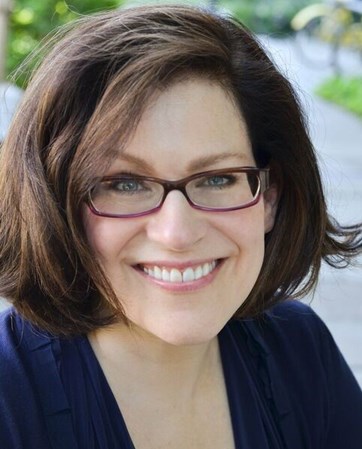Speakers By Topic

Speakers By Type


"{{ovation.quote}}"
-{{ovation.company}}The Importance of Being Little: what young children really need from grownups
Can we repair the early childhood “habitat” in which young children learn and grow? Parents and caregivers will learn early childhood has changed in a generation and will be given evidence-based strategies to support children in the early years, with a special focus on the physical environment, social-emotional learning, and language development.
How to grow a reader: supporting language and literacy in early childhood (without stress and tears)
Reading is one of the most complex and most recent of human achievements and, unlike mathematics, one of the least natural or intuitive. Becoming a good reader requires the integration of many skills, but some children nevertheless learn to read with ease. What does science tell us about how to create strong readers? Caregivers/parents will learn about the reading continuum from birth through elementary school and the critical role of oral language, including specific strategies to structure classrooms and home environments for phonological knowledge, comprehension, vocabulary development, and a passion for reading.
Picking a preschool: What does high-quality early education really look like?
What makes a good early childhood program? Parents worry about program cost, access, and quality, but some of the most common measures of quality don’t tell the whole story. By adopting the perspective of a young child going to preschool or daycare for the first time, parents and caregivers will learn to strengthen their observational and empathic skills in order to make the most of their child’s early learning environment. Special attention to proven research-based strategies, including home-school partnerships that can work in a variety of child-care settings.
Going off script: The case for creativity in early childhood
Young children’s lives are increasingly scripted, with more direct instruction in classrooms and less free playtime at home. How can adults help children reclaim their creative voices and develop the imagination and problem-solving skills linked to many positive outcomes? Caregivers and parents will learn the scientific evidence for creativity, with specific strategies to enhance expressive art, storytelling, and music in the classroom and at home.
The essential connection: supporting healthy emotions in an iPad world
What is it like to be a young child? Adults often miss children’s emotional cues or have trouble responding to them in part because we don’t remember our own childhoods! Technology and the demands of 21st century life can make it especially hard to see how children really think and feel. Parents and caregivers will learn how to improve the emotional “cueing system” between adult and child, with special attention to children’s need for autonomy, competence, and connection.
Erika Christakis is an early childhood educator, New York Times best-selling author of The Importance of Being Little: What Young Children Really Need From Grownups, and member of the National Advisory Board of Defending the Early Years. A former faculty member of the Yale Child Study Center, she has written widely about child development from preschool through the college years. Erika is an honors graduate of Harvard College, where she majored in anthropology, and holds master’s degrees in public health, communication, and early childhood education. She is a Massachusetts-certified teacher (pre-k through 2nd grade) as well as a licensed preschool director. For two years, she wrote a TIME.com Ideas column and her work has been featured in a number of other venues, including The Atlantic, The Washington Post, The Boston Globe, CNN.com, Nightline, Salon, NPR, and the Financial Times. A mother of three grown children, she lives with her husband in New Haven, Connecticut.